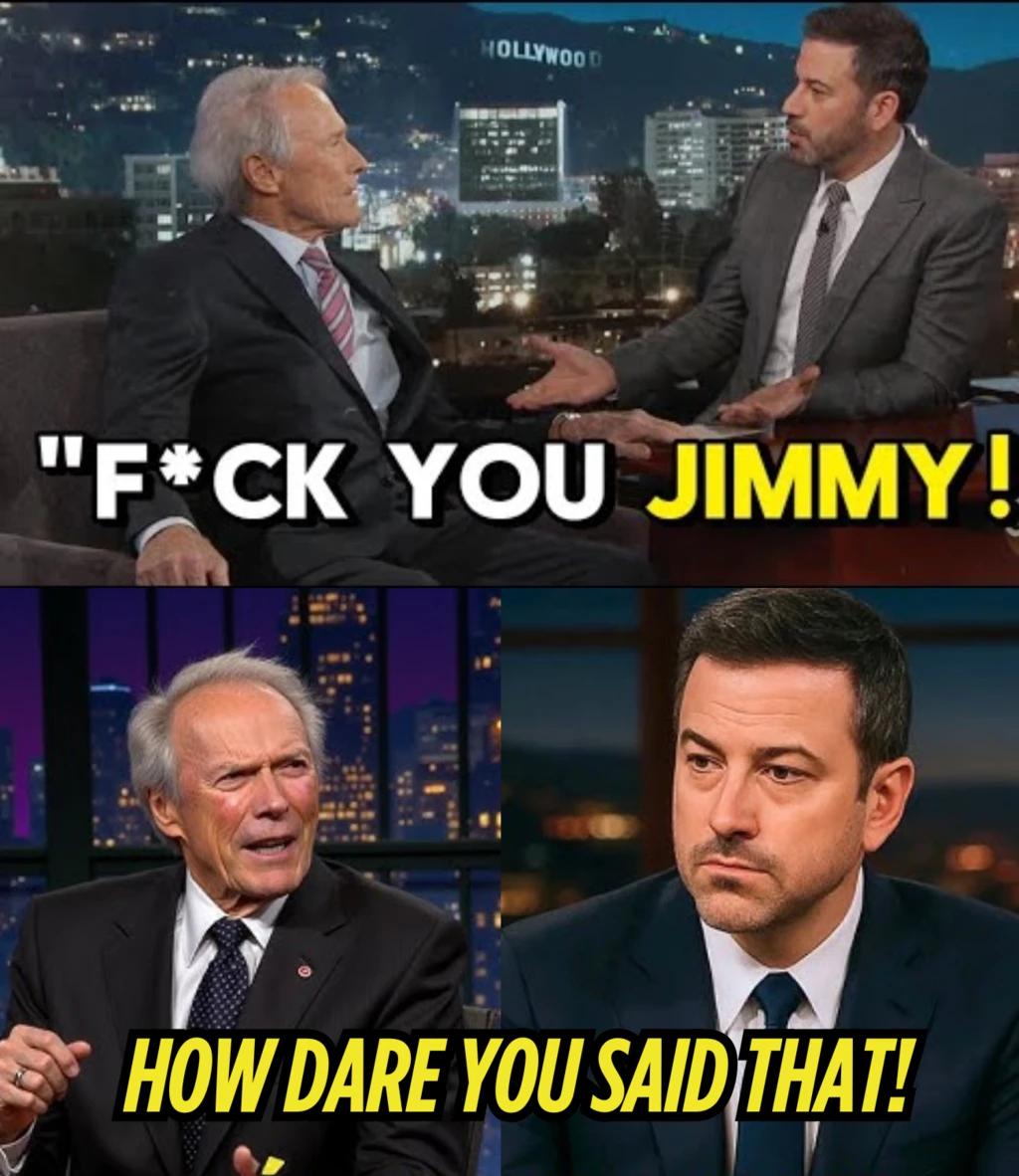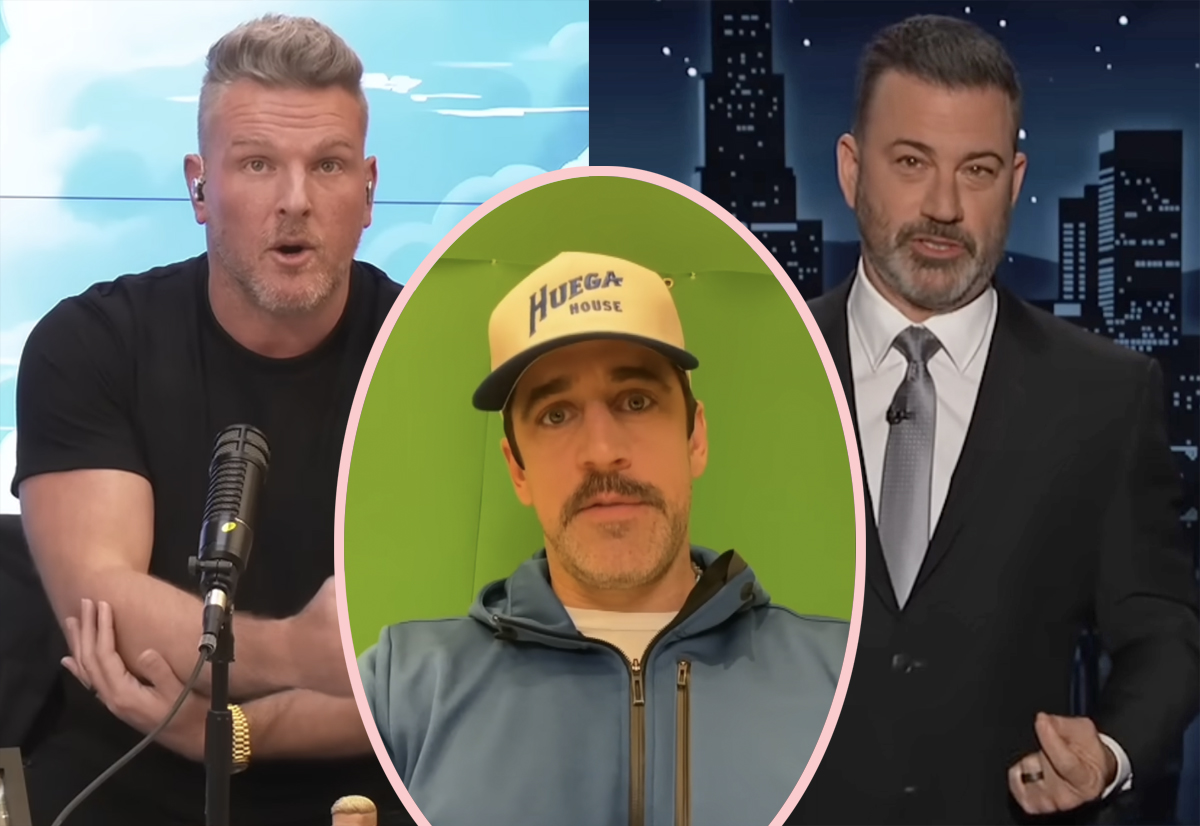Picture this: a living legend, known for his steely gaze and quiet power, suddenly in a very public, heated argument on late-night television. The idea of Clint Eastwood kicked off Jimmy Kimmel's show after a heated clash has certainly sparked a lot of talk, hasn't it? It’s a scenario that, you know, captures everyone’s imagination, sparking curiosity about what could possibly lead to such a dramatic moment.
Stories like this, whether they are fully confirmed or just swirling around, tend to spread like wildfire. People are naturally curious about what happens behind the scenes with their favorite stars. When a respected figure like Clint Eastwood is involved, the interest just goes through the roof, apparently. We all want to know the real story, or at least, what people are saying about it.
This particular buzz about Clint Eastwood and Jimmy Kimmel brings up a lot of interesting points about celebrity interviews and how public figures handle tough questions. It also makes us wonder about the nature of fame itself. As a matter of fact, it's pretty fascinating to see how these kinds of tales become part of the larger conversation, even if they are, in some respects, more rumor than fact.
Table of Contents
- Clint Eastwood: A Brief Look
- The Talk of a Clash That Sparked Conversation
- Why Such Stories Really Grab Us
- The Art of the Interview: When Public Figures Meet
- What Could Happen Next? The Aftermath
- Frequently Asked Questions
Clint Eastwood: A Brief Look
Clint Eastwood is, quite simply, a monumental figure in Hollywood. His career spans decades, covering acting, directing, and producing. He is, you know, a true icon, celebrated for his roles in classic Westerns and gritty dramas. His impact on film is, frankly, immense.
He's known for his strong, often quiet characters, and his personal demeanor often reflects that same kind of strength. People see him as a symbol of American grit and determination. So, when his name comes up in connection with something as fiery as being asked to leave a talk show, it really gets people talking. It's almost unbelievable, in a way, for someone with his composure.
Personal Details & Bio Data
| Detail | Information |
|---|---|
| Full Name | Clinton Eastwood Jr. |
| Birth Date | May 31, 1930 |
| Birthplace | San Francisco, California, USA |
| Occupation | Actor, Film Director, Producer, Composer |
| Years Active | 1955–present |
| Notable Roles | Dirty Harry, The Man with No Name (Dollars Trilogy), Frankie Dunn (Million Dollar Baby) |
| Major Awards | Multiple Academy Awards, Golden Globe Awards |
The Talk of a Clash That Sparked Conversation
The idea of Clint Eastwood kicked off Jimmy Kimmel's show after a heated clash has been a topic of much discussion, you know, on social media and in various online forums. It paints a very vivid picture: two strong personalities, a late-night setting, and a sudden, rather shocking turn of events. This kind of story, whether fully confirmed or not, certainly generates a lot of clicks and comments.
Live television interviews can be unpredictable, that's for sure. Sometimes, a host might ask a question that a guest finds a bit too personal or perhaps even disrespectful. Other times, a guest might respond in a way that feels unexpected or confrontational. It's a delicate dance, and sometimes, the steps just don't line up, so to speak. This makes for very compelling, if sometimes uncomfortable, viewing.
We see this sort of tension play out in many different public interactions. For example, in some discussions about characters named "Clint," people have pointed out that a lot of NPCs still hit on your partner or flirt with you after marriage, and that Clint gets singled out. This idea of being "singled out" for scrutiny or strong opinions is something public figures, like Clint Eastwood, often experience. It's like the public has very specific expectations, and any deviation can create a stir, basically.
The core of his public persona, you might say, is his quiet strength. So, the thought of him in a loud, public argument is, frankly, a bit jarring for many. It goes against the image he has carefully built over so many years. This is why the story, even if it's just a rumor, holds such a grip on people's attention. It's a clash of expectations, in a way.
Why Such Stories Really Grab Us
People are drawn to drama, especially when it involves famous individuals. There's something inherently captivating about seeing powerful figures in moments of vulnerability or conflict. It makes them seem more human, more relatable, perhaps. The idea of a legend like Clint Eastwood losing his cool, or being put in a situation where he feels he needs to leave, is pretty compelling. It's almost like seeing a character step out of their usual role, you know?
There's also the element of surprise. We expect talk show interviews to be generally lighthearted and promotional. When they take an unexpected turn, it becomes memorable. It's like a plot twist in a movie, but it's happening in real time. This is why news about a heated exchange, or someone getting kicked off, can become such a big deal, very quickly.
Think about how some people feel about various "Clint" figures in popular culture. For instance, it has only been until recently that some found out people hated a particular "Clint" character, and they had no idea why. This shows how public perception can be really strong, and sometimes, you know, even unexpected. People form very strong opinions about public figures, and these opinions can be quite varied, and sometimes, frankly, quite negative, for reasons that aren't always clear to everyone.
The internet, too, plays a huge part in how these stories spread. A single tweet or a short video clip can go viral in minutes, sparking countless discussions and debates. It creates a sort of collective curiosity, where everyone wants to weigh in or find out more. This makes it easier for rumors to gain traction, and for people to speculate wildly, too it's almost a sport for some.
This kind of public reaction can be compared to how some public figures, like Clint Saunders, can become associated with specific, sometimes controversial, events. It shows how a name, or a person, can become a focal point for intense public scrutiny and debate. The stories around them, whether positive or negative, really stick in people's minds, you know, for a long time.
The Art of the Interview: When Public Figures Meet
Talk show interviews are a unique form of interaction. They are meant to entertain, to promote, and sometimes, to offer a glimpse into the personality of a famous guest. A good host, like Jimmy Kimmel, tries to create a comfortable space, but they also have to ask interesting questions, which can sometimes push boundaries, you know. It's a fine line between engaging conversation and something that feels a bit too much.
For the guest, it's about presenting themselves in a good light, perhaps promoting a new project, and handling any unexpected questions with grace. But what if a question hits a nerve? What if the dynamic shifts? That's when things can get really interesting, and potentially, very tense. It's a bit like a game, and the "core of his gameplay," as some might say about a character, is to manage that interaction perfectly.
Sometimes, the host might try to be funny or provocative, and a guest might not take kindly to it. Or, the guest might have a strong opinion they feel compelled to share, even if it goes against the usual talk show script. This can lead to moments that are, frankly, unforgettable, for better or worse. It’s a moment where a single "crit item," or a sharp comment, can change everything, relying on chance, you know, to land just right.
The public, meanwhile, watches these interactions with keen interest. They want to see genuine moments, not just rehearsed answers. This desire for authenticity can sometimes lead to an appreciation for a celebrity who speaks their mind, even if it causes a bit of a stir. It shows a side of them that isn't always polished, and that can be really appealing to people, basically.
It's also worth thinking about how different figures named "Clint" are seen in the public eye. There's the game character "Clint" whose "skills are the ones who deal the most damage," and whose "passive" is the "meat of his damage." This could be seen as a metaphor for a public figure's ability to make a powerful statement or create a strong impact, even with just a few words. The less predictable the interaction, the more "damage" it might do, in a way, to the usual calm of a talk show setting.
What Could Happen Next? The Aftermath
If such an event, where Clint Eastwood kicked off Jimmy Kimmel's show after a heated clash, were to actually happen, the immediate aftermath would be huge. News channels would report on it, social media would explode, and it would be the main topic of conversation for days, if not weeks. Everyone would have an opinion, naturally. It would be analyzed from every angle, like a major news event.
For both Clint Eastwood and Jimmy Kimmel, there would be a lot of public relations work to do. They might issue statements, or perhaps one or both would address it on a future show. The public's



